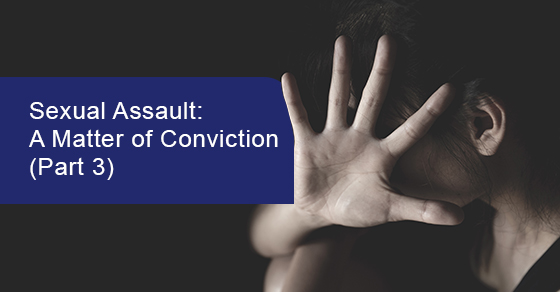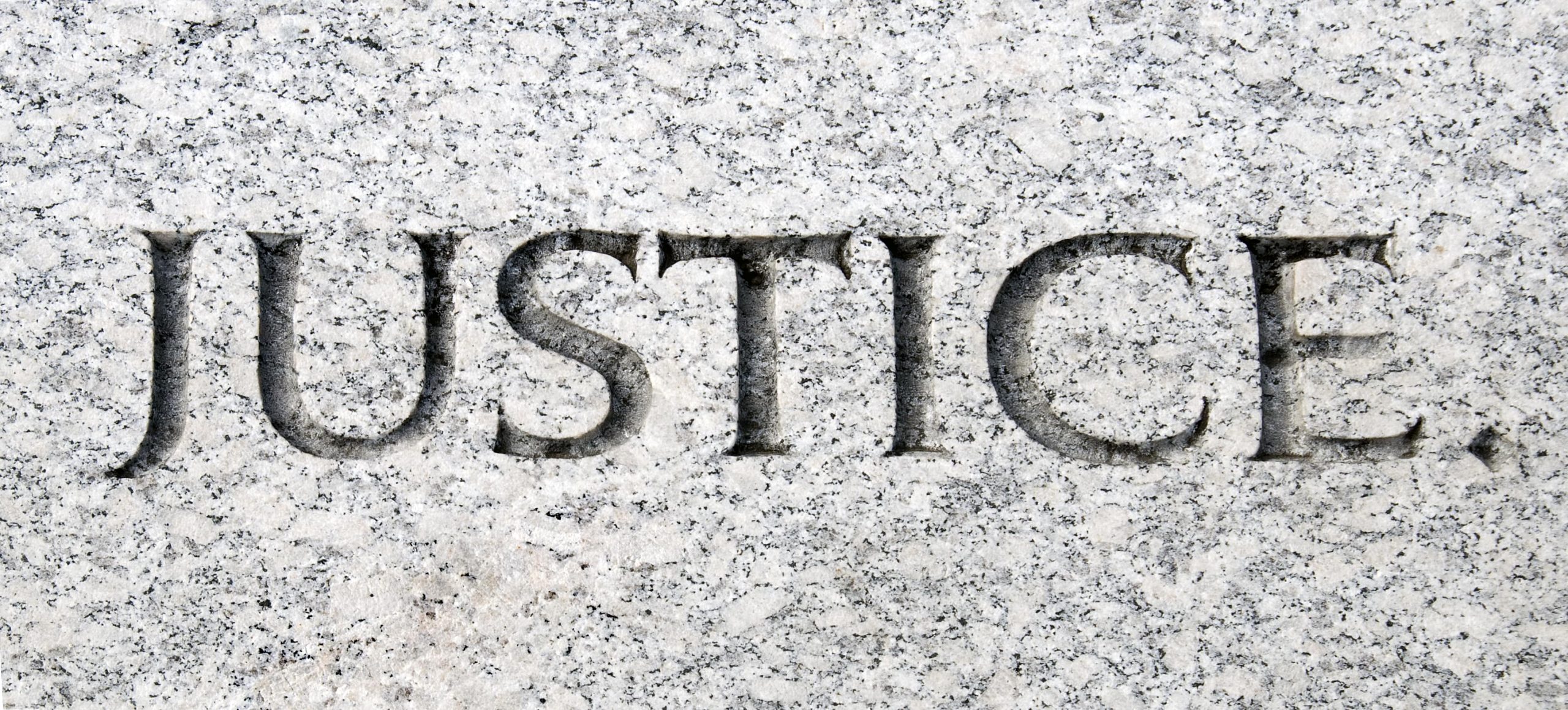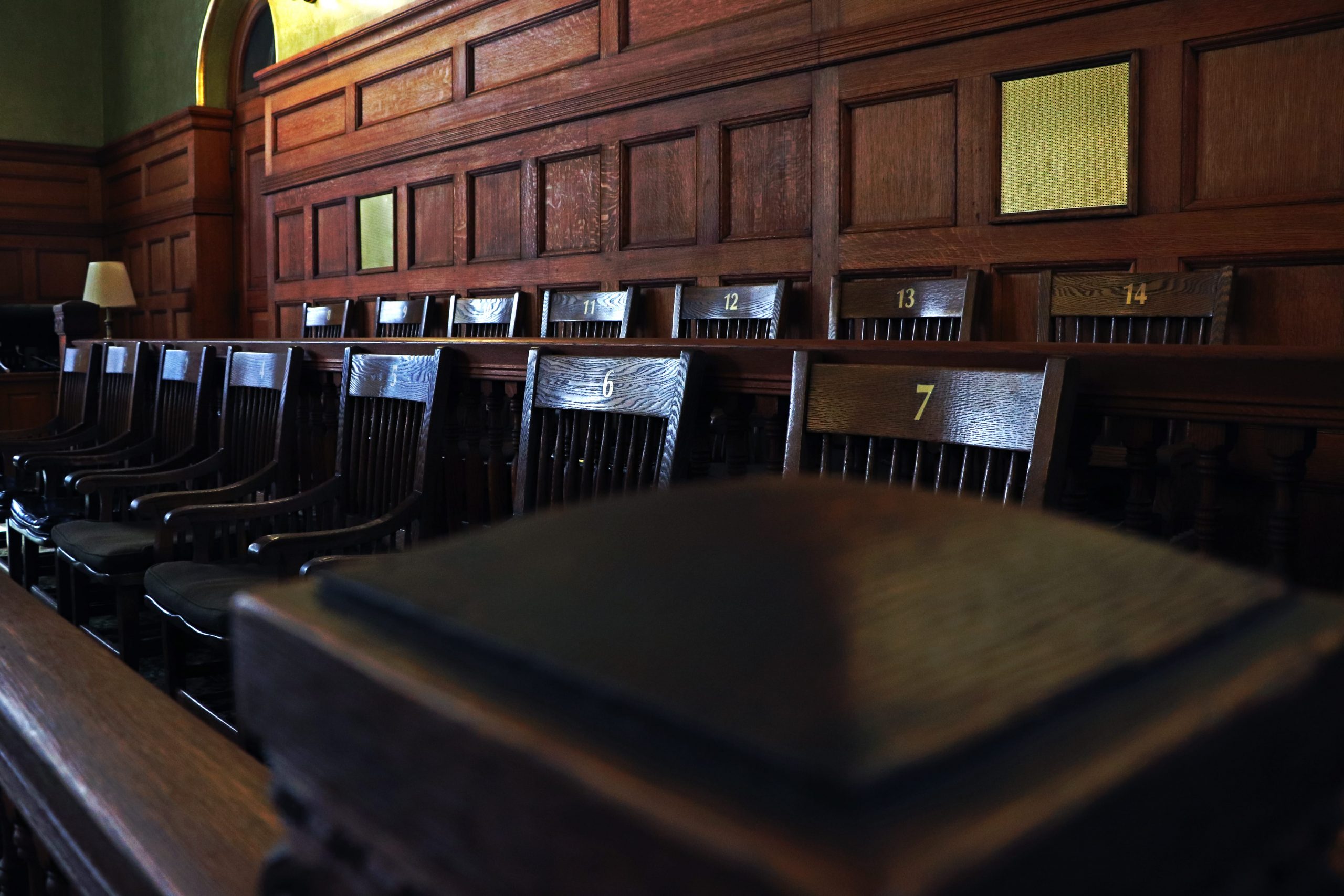Sexual Assault: A Matter of Conviction (Part 3)

Blog by Arun S. Maini
For hundreds of years, an individual has had the right in serious cases to be tried by a “jury of his peers”. As part of the process of jury selection, the defendant had a say in who would make up the group of twelve jurors who would decide his or her fate.
Not anymore.
As mentioned in the earlier instalments of this blog series, the government, using the excuse of reducing delay, or remedying an injustice, has passed laws that limit the ability of the defence to fully present its case, or restrict the access of the defendant to procedures and options that make a real difference in deciding between guilt and innocence.
Those new laws will result in more convictions. The government won’t state that explicitly, because Justice is supposed to be impartial. They will talk about reducing delay, protecting victims from abuse, and protecting diversity. But the timing and content of some of these laws reveal their true impact.
Sexual assault is a terrible crime, deserving of serious punishment. But for that same reason, anyone accused of sexual assault deserves to be able to defend himself fully, and the benefit of laws and rules of evidence that recognize and protect the presumption of innocence. Only those proven guilty to a very high standard should have to face those severe consequences. Those standards should not be watered down to cater to concerns about efficiency, hurt feelings or politics. But unfortunately some of the recent sexual assault laws introduced by the federal government are knee-jerk reactions to the headlines rather than carefully considered measures.
We mentioned three examples of such “quick fixes” in the last blog about this topic, which you can find HERE. They are:
- Policies that limit police investigation or prosecutorial discretion;
- The elimination of preliminary hearings;
- Requiring the defence to disclose its evidence to the prosecution.
In this blog, we will deal with the third example.
The Elimination of Jury Challenges
Imagine that you are charged with a serious crime, and you are in court about to pick a jury.
Until just recently, you would have been given twelve “peremptory challenges”, which meant that you could reject up to twelve potential jurors without giving an explanation. There could be many reasons why you, as a defendant, might be uncomfortable with a potential juror: maybe the juror is giving you dirty looks or staring at you unsympathetically; maybe he is reading a “law-and-order”-focused newspaper in the courtroom, or maybe their occupation is such that you feel that she or he would not judge your case fairly.
In many instances, if you are a member of a particular visible or religious minority, having at least one juror from your community might reassure you that you have at least a chance at a fair and impartial hearing.
By having your say in selecting the jury, you will feel more comfortable with the final group of people who will decide your fate.
As a result of the new law, you no longer get to have that say in who will sit on your jury.
So let’s say you are black, and all the jurors picked for the jury so far are white. But if you can hold out a bit longer, there is a black panel member a couple of names down the list who you think could at least ensure at least one black member on your jury. You might use some of your peremptory challenges to get to that black juror. But under the new law, you have to live with the first random twelve people to come forward, and you have no say over who they are, regardless of how you feel about any of them. Maybe you are charged with sexual assault, and you don’t want that sex assault clinic social worker on your jury- too bad. Maybe you are charged with a DUI and you don’t feel comfortable with a paramedic, who has been at the scene of so many accidents- too bad.
Why did the government feel the need to change the law? Because of one case a couple of years ago in Saskatchewan, in which an indigenous person was killed, and the white person on trial used some of his challenges to eliminate indigenous jurors from his jury. There was some bad press about this, and the government immediately announced that they would solve the problem in that one case by eliminating peremptory challenges in all cases across the country. So as a result of one court case, hundreds of years of legal process and protection were wiped out.
The result is, for example, that all of the black and indigenous defendants facing trial in this country no longer have the ability to ensure that at least one person from their ethnic community gets to be on the jury deciding their case. That’s the problem with instant, “one-size-fits-all” solutions: they create more problems than they solve.
So by hastily implementing “quick fix” laws to address momentary controversies, the government has upended centuries of legal process without fixing the so-called “problem”, while in fact increasing the chances of more wrongful convictions and undermining the perceived impartiality of the justice system.
There are plenty of actual problems in the justice system that need fixing, like mandatory minimum sentences or the ten-year wait for a pardon. Why don’t we fix those before we go presenting solutions to issues that do not pose a problem?
If you or a loved one are facing criminal charges and need the advice of an experienced and skilled lawyer to help you through the legal process, call The Defence Group for a free consultation at 877-295-2830.
Arun S. Maini is a criminal lawyer and former prosecutor with 25 years of experience



